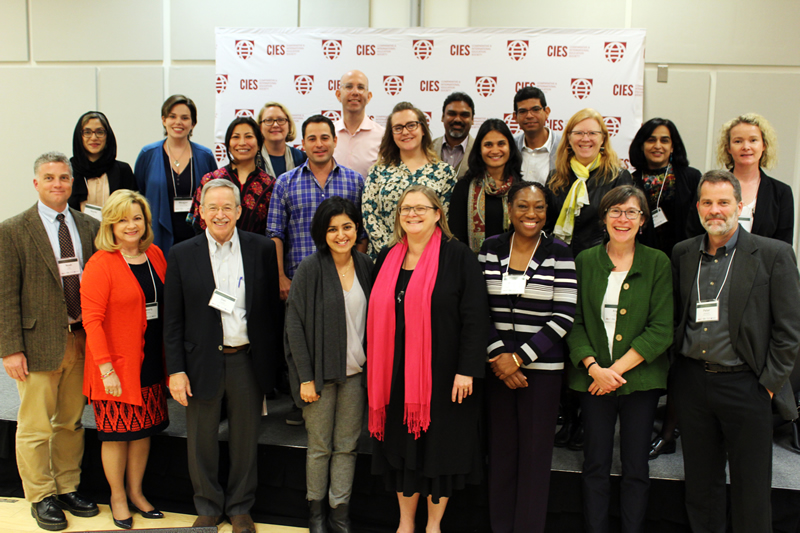Mason Hosts Provocative Symposium on Research in Comparative and International Education
November 27, 2017
How can research practices be more socially and culturally inclusive? Are the values of our participants being recognized and honored? Does our research perpetuate systems of inequality or oppression? These were just a few of the challenging questions that over 200 researchers, professors, leaders, and graduate students wrestled with at the second annual Comparative and International Education Society (CIES) symposium hosted by George Mason University at the Arlington Campus last month.
Dr. Fran Vavrus, a plenary speaker and faculty member at the University of Minnesota, spoke to the event’s successful organization. “The most memorable part of the symposium experience was the degree of interaction during the plenary panels. So often, we attend conferences with provocative speakers but do not have a chance to pose our questions to them due to the short period for Q & A. Moreover, panels are rarely structured so that members of the audience can talk together and share their ideas during the sessions themselves. These opportunities for engagement were memorable and have given me new ideas about how we as a professional society might organize symposia and conferences in the future.”
Under the leadership of the Convening Committee, including Mason professors Supriya Baily and Meagan Call-Cummings, the symposium was filled with two days of spirited debate and substantive discussion. The symposium committee sought to address concerns that the field of comparative and international education (CIE) has historically been influenced by colonial and neo-colonial practices. Assembling panels of leading thinkers willing to be confronted by these complicated subjects was key. As Dr. Oren Pizmony-Levy Drezner of Teachers’ College, Columbia University stated lightheartedly, “I want to thank you all for making me so uncomfortable.”
Discussion about new directions that research could take led Dr. Lesley Bartlett of the University of Wisconsin-Madison to suggest that researchers shift focus to “researching up” in order to better understand power brokers who enact policy that hurt those most vulnerable. Beverly Shaklee, Director of Mason’s Center for International Education, responded that this suggestion was her key takeaway, saying that “it is clear that while many of us have been studying and supporting diverse populations, we’ve shied away from studying those who do not share our values. I think perhaps that’s why we were so blindsided by the last election. There are other forms of ‘voice’ that we need to understand.”
The CIES Symposium supported not only those within the field of CIE, but also provided an opportunity for George Mason University to shine. Complementing the program on a well-run, insightful, and productive experience, attendees left the event feeling positive and inspired. “The symposium showcased our program and our students in a way that I think a lot of people had not been aware of prior to this,” Baily commented.

Speakers at the second annual Comparative and International Education Society (CIES) symposium
